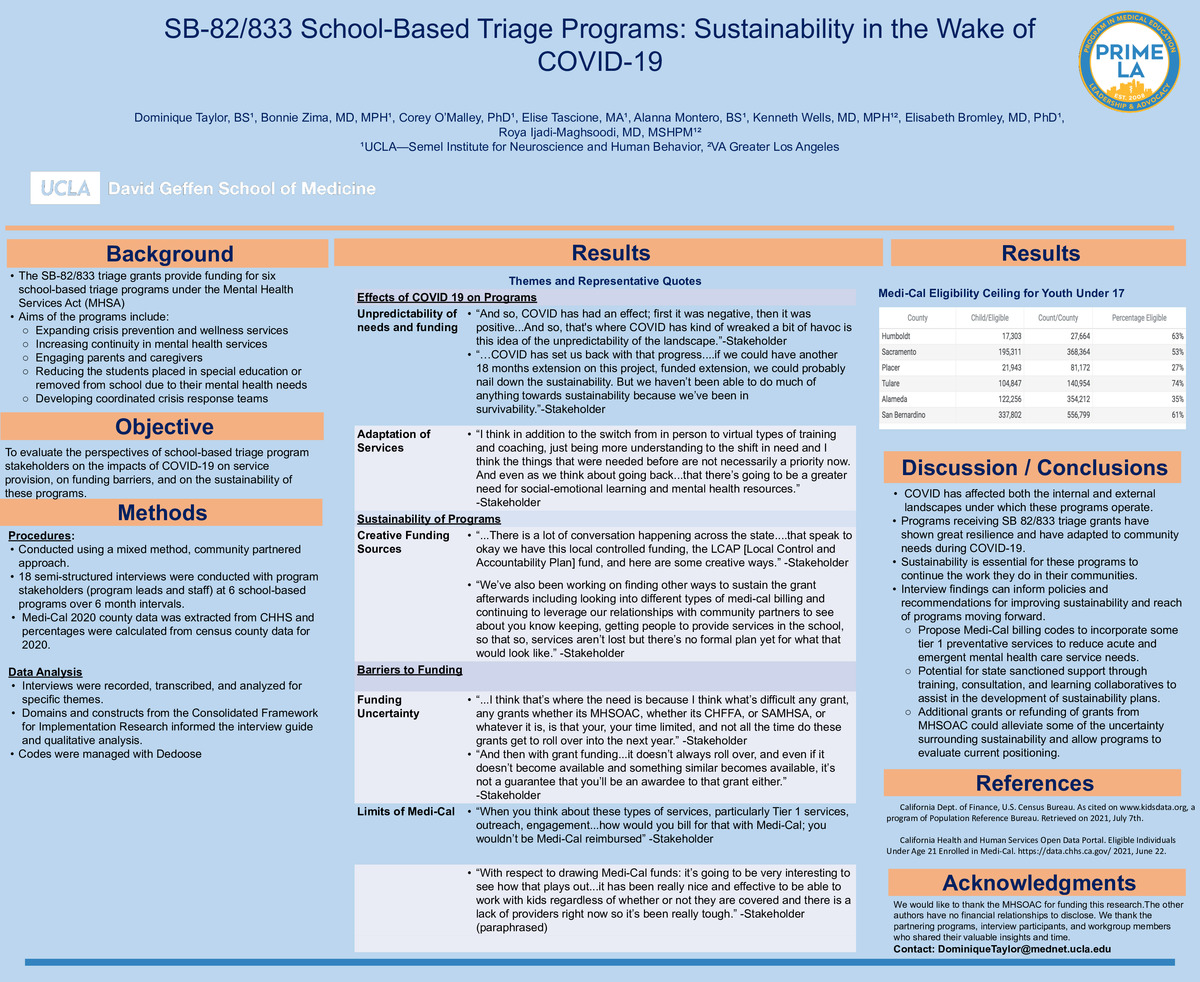-
Author
Dominique Taylor -
PI
Roya Ijadi-Maghsoodi
-
Co-Author
Dominique Taylor
-
Title
SB-82/833 School-Based Triage Programs: Sustainability in the Wake of COVID-19
-
Program
Other
-
Other Program (if not listed above)
PRIME
-
Abstract
Dominique Taylor, BS¹, Bonnie Zima, MD, MPH¹, Corey O’Malley, PhD¹, Elise Tascione, MA¹, Alanna Montero, BS¹, Kenneth Wells, MD, MPH¹², Elisabeth Bromley, MD, PhD¹, Roya Ijadi-Maghsoodi, MD, MSHPM¹²
¹UCLA—Semel Institute for Neuroscience and Human Behavior, ²VA Greater Los Angeles
Background:The SB-82/833 triage grants provide funding for Child/Youth and School County Collaborative Triage Programs to deliver crisis prevention services under the Mental Health Services Act. The school-based programs’ aims are targeted to their communities and include to expand crisis prevention and wellness services, increase continuity in mental health services through community partnerships, engage parents and caregivers, reduce the amount of kids place in special education or removed from school due to their mental health needs, and to develop a coordinated crisis response team on campuses when mental health crises arise.
Objective: To evaluate the perspectives of school-based triage program stakeholders on the impacts of COVID-19 on service provision, on funding barriers, and on the sustainability of these programs.
Methods: This evaluation was conducted using a mixed method, community partnered approach.18 semi-structured interviews were conducted with program stakeholders (program leads and staff) at 6 school-based programs over 6 month intervals. Medi-Cal 2020 county data was extracted from CHHS and percentages were calculated from census county data for 2020. Interviews were recorded, transcribed, and analyzed for specific themes. Domains and constructs from the Consolidated Framework for Implementation Research informed the interview guide and qualitative analysis. Codes were managed with Dedoose.
Results: Interviews of program stakeholders provided insights regarding the effect of COVID-19 on programs, the sustainability of programs, and the barriers to funding. Stakeholders described facing challenges due to the COVID-19 pandemic and overall uncertainty regarding sustainability going forward. Despite these challenges, many of the programs adapted to the shift in needs of their communities and are working to establish sustainability plans for the future.
Discussion/Conclusions: COVID-19 has affected both the internal and external landscapes under which these programs operate. Interview findings can inform policies and recommendations for improving sustainability and reach of programs moving forward.
-
PDF
-
Zoom
https://uclahs.zoom.us/j/91808342023?pwd=aVIvcUhKSzAvL1lMdGk1Q2FyNWVUUT09

